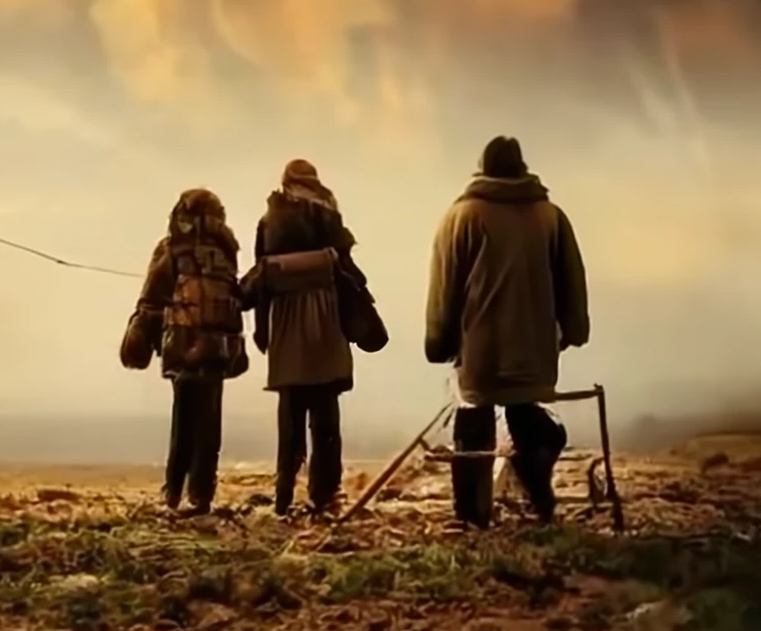Urban Survival Planning
Survival planning, preparedness, and resilience are essential elements for anyone living in a city or urban environment. While we might not face the same challenges as wilderness survivalists, the principles of planning, preparation, and practice are just as crucial in an urban setting. In today's world, where unforeseen emergencies can happen anytime, failing to plan is planning to fail.
Urban survival planning involves recognizing that unexpected negative events can, and have, occurred in your city and then taking steps to increase your ability to endure and recover from them in the future. Consider factors like the potential for power outages, natural disasters, civil unrest, or even economic downturns. Familiarize yourself with evacuation routes, local emergency services, and community resources. Stay informed about potential threats through reliable sources like news outlets and government websites.
Preparation in an urban context means getting yourself and your urban survival kit ready for various contingencies. Your plan should start with personal readiness, which includes having a well-stocked first aid kit and ensuring your health is in check. Make sure you have essential supplies like non-perishable food, water, flashlights, batteries, and a battery-operated radio. Consider investing in a backup power source, such as a generator or solar panels.
Upgrade your urban attire for emergencies; invest in comfortable and durable clothing and footwear suitable for various weather conditions. Know how to use essential tools like fire extinguishers and how to shut off utilities like gas and water in your home.
Urban survival kits should be designed to address the unique challenges of city living during a crisis. Consider these key categories for your urban survival kit:
- Communication: Include a fully charged mobile phone, a backup power bank, and a battery-operated radio to stay informed.
- Food and Water: Stock non-perishable food items, bottled water, sterilisation tablets and a portable water filter. Consider long-lasting food like canned goods and dehydrated meals. Baby formula and pet food should also be considered where relevant to your situation.
- Shelter: Have a tarp or emergency tent, as well as blankets or sleeping bags for shelter. Seeking shelter inside an empty or abandoned building is generally a much better option than being exposed outdoors.
- First Aid: Assemble a comprehensive first aid kit with items like plasters, bandages, antiseptics, antihistamine, antibiotics, pain-killers of various kinds, asthma meds, anti-diarrhoea and trauma medical equipment. Female sanitary products and special medications specific to individual family members should also be considered where relevant.
- Tools and Gear: Include a multi-tool, flashlight, extra batteries, and fire-starting equipment.
- Self-defense: Depending on where you live, you may not have access to firearms. Without proper training and familiarisation, guns can be more dangerous to you than helpful. However you can guarantee that you will come across other desperate people toting this weapons. In addition to a good quality fixed blade knife, consider personal safety tools like pepper spray and/or personal alarms.
- Documentation: Keep important documents in a waterproof container, including identification, insurance policies, and contact information for family members.
- Money: Have some cash on hand in small denominations, as ATMs and card machines may not function during emergencies. Gold and silver bars, ingots and jewellery may also be used as currency in a SHTF situation. If you have invested in crypto-currencies, consider downloading at least some of these to a hardware wallet and keep this in your bug-out bag.
- Navigation: Include a detailed map of your city, a GPS device and a reliable compass.
You may have all the coolest survival gear and gadgets in the world, but without relevant skills, knowledge or experience, they are simply things that can be taken away from you at any time. Make sure you invest in learning vital survival skills and take some courses while there is still time. Here are some educational courses you should seriously consider:
- Basic Wilderness Survival Course: While it may seem counterintuitive for urban dwellers, a wilderness survival course can teach essential skills like shelter-building, fire-starting, navigation, and first aid, which can be adapted for urban survival and for when you need to bug out to a rural location.
- Urban Survival and Preparedness Courses: Many organizations offer courses specifically tailored to urban survival, covering topics like emergency food storage, water purification, self-defense in an urban environment, and home security.
- First Aid, CPR and Emergency Medical Training: Knowing how to administer first aid and perform CPR can be crucial in emergency situations. Many organizations, including the American Red Cross, offer advanced and specific certification courses in these skills. Courses like Basic Life Support (BLS) and Advanced Life Support (ALS) can provide valuable medical skills for handling injuries or medical emergencies in a crisis.
- Firearms and Self-Defense Training: If you plan to include self-defense as part of your survival strategy, consider taking firearm safety and self-defense courses from certified instructors. Make sure you book time on a gun range as often as time permits. Choose martial arts styles that are focussed on practicality and are not about looking fancy.
- Emergency Communication Courses: Learning how to use CB radios, HAM radios, sat-phones and other communication devices effectively can be crucial for staying in contact with loved ones or emergency services during a disaster. Look for clubs dedicated to ham radio operation or emergency communication.
- Wild Edible and Medicinal Plants Courses: Understanding which plants in your urban environment are edible and have medicinal properties can be invaluable. Courses on wild plants can help you identify useful resources in your area.
- Disaster Response and Preparedness Courses: Some organizations offer courses focused on disaster response and preparedness, which cover topics like disaster psychology, search and rescue techniques, and community-based disaster response.
- Tactical Training: Tactical training courses can teach you how to move safely and effectively in urban environments, use cover and concealment, and make tactical decisions.
- Homesteading and Sustainable Living Courses: These courses cover skills like gardening, food preservation, raising livestock (if applicable), and off-grid living, which can be essential if urban infrastructure breaks down.
- Navigation and Orienteering Courses: Learning how to read maps, use a compass, and navigate without GPS can be vital if you need to move through an urban area during a crisis.
- Community Emergency Response Team (CERT) Training: CERT and similar programs are often offered by local emergency management agencies and provide training in disaster response, including first aid, fire safety, and search and rescue.
- Prepper and Survivalist Workshops: Look for workshops and seminars conducted by experienced preppers and survivalists. These can cover a wide range of topics and provide practical insights. You can find these on social media in most countries.
Before enrolling in any course, do thorough research to ensure it aligns with your specific needs and goals. Additionally, consider your budget, time availability, and the credibility of the course provider. Building a comprehensive skillset through a combination of these courses can significantly enhance your readiness for urban survival situations.
Regularly review your urban survival plan with your family or household members, so everyone knows what to do in case of an emergency. Make sure everyone knows where to meet up in the event you get separated. Conduct drills for various scenarios, like evacuations or power outages, to ensure everyone is familiar with these plans.
Don't forget your pets - you will need to decide in advance whether they will be part of your survival plan and to what extent they will help or hinder your efforts.
In an urban setting, survival planning and preparedness are essential for maintaining safety and security during unforeseen events. By being proactive and organized, you can significantly increase your chances of staying alive and safe in your city or suburb.

